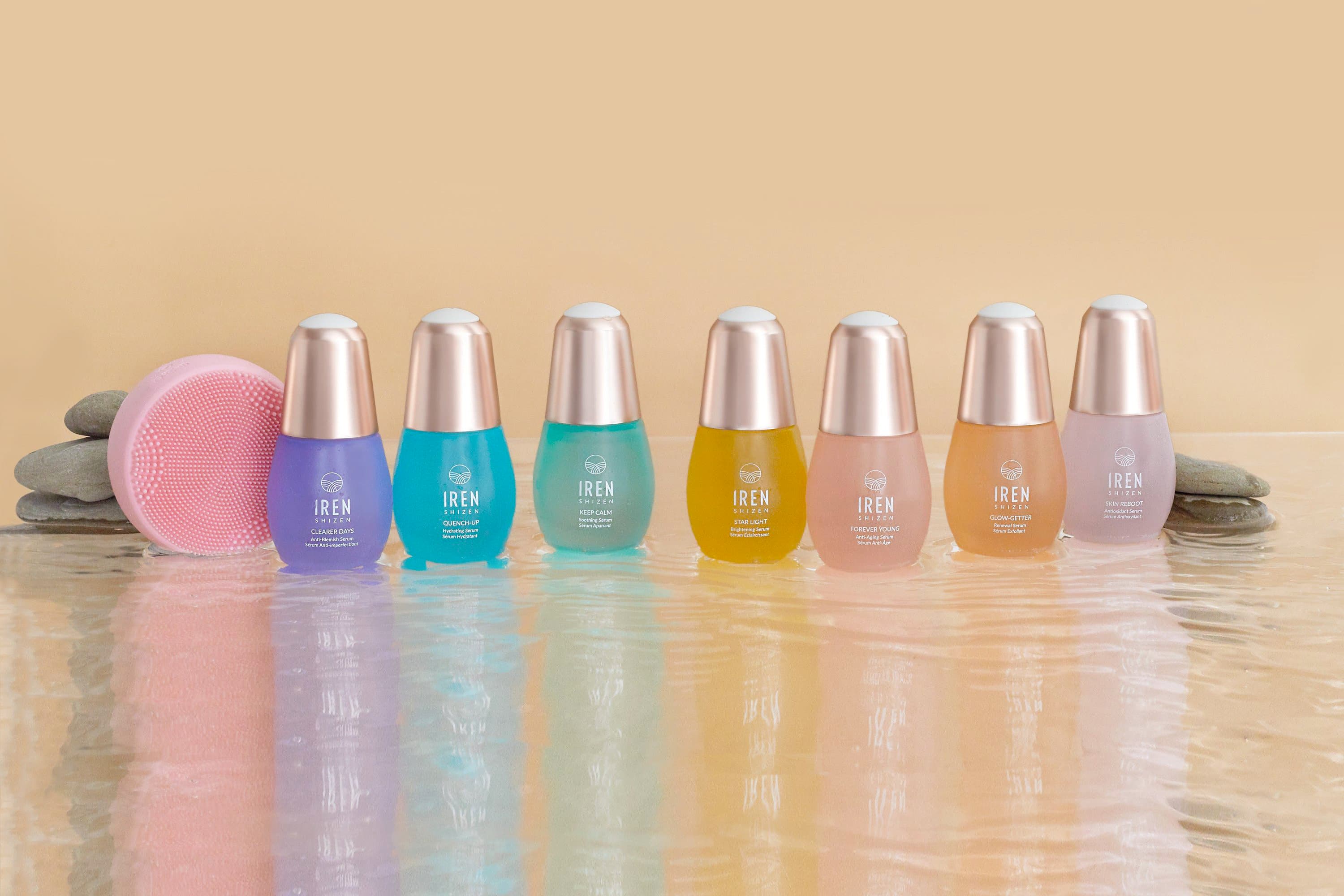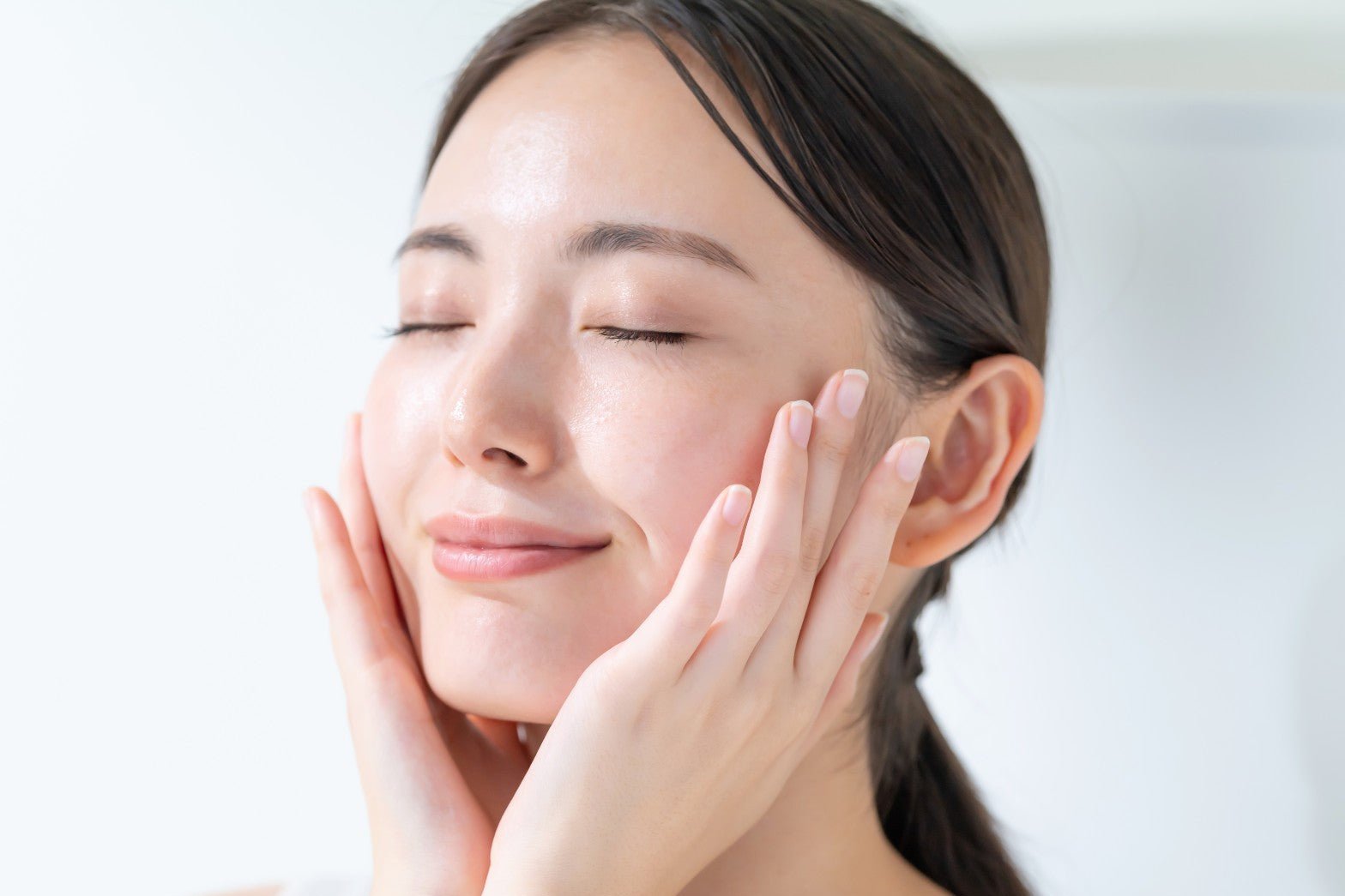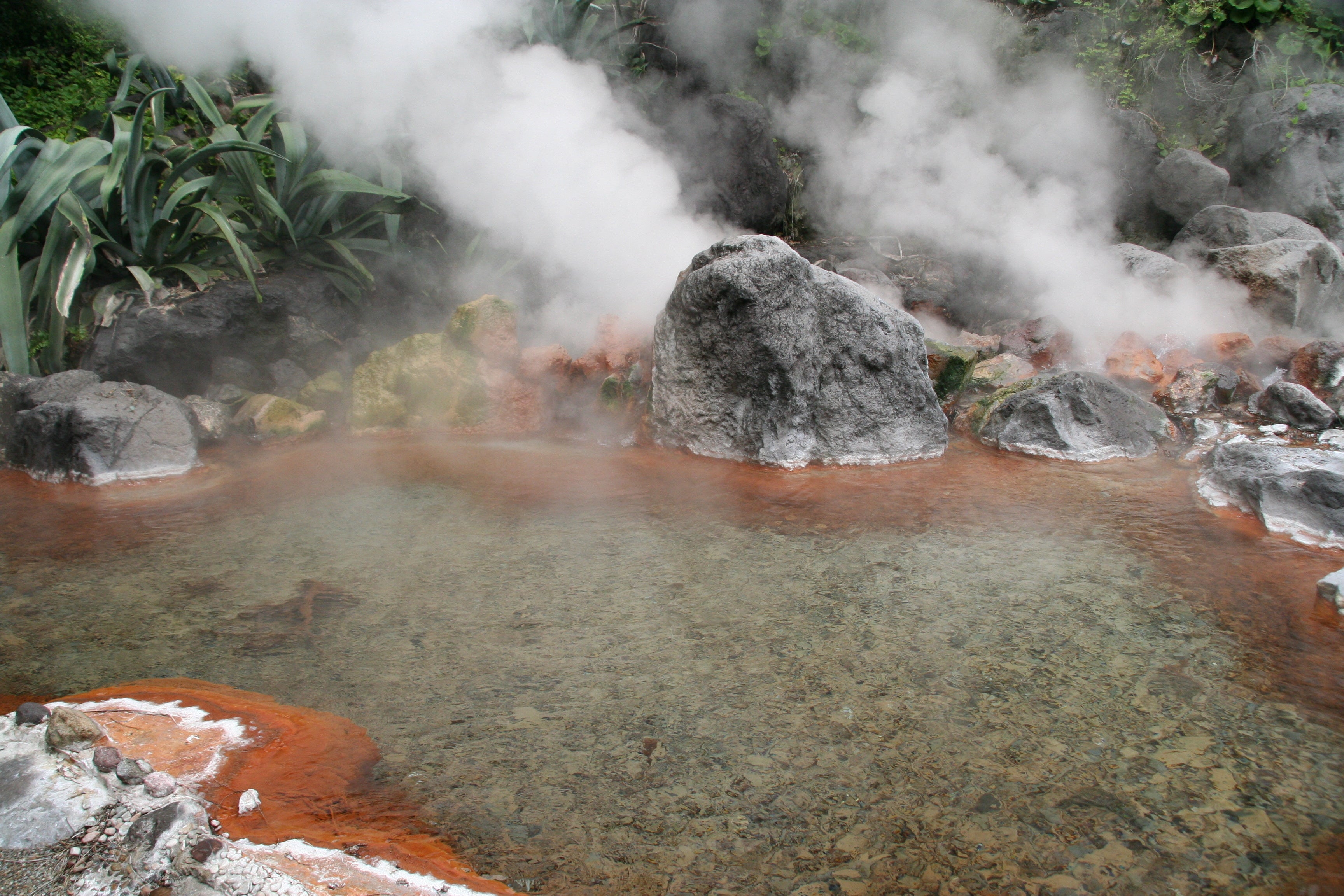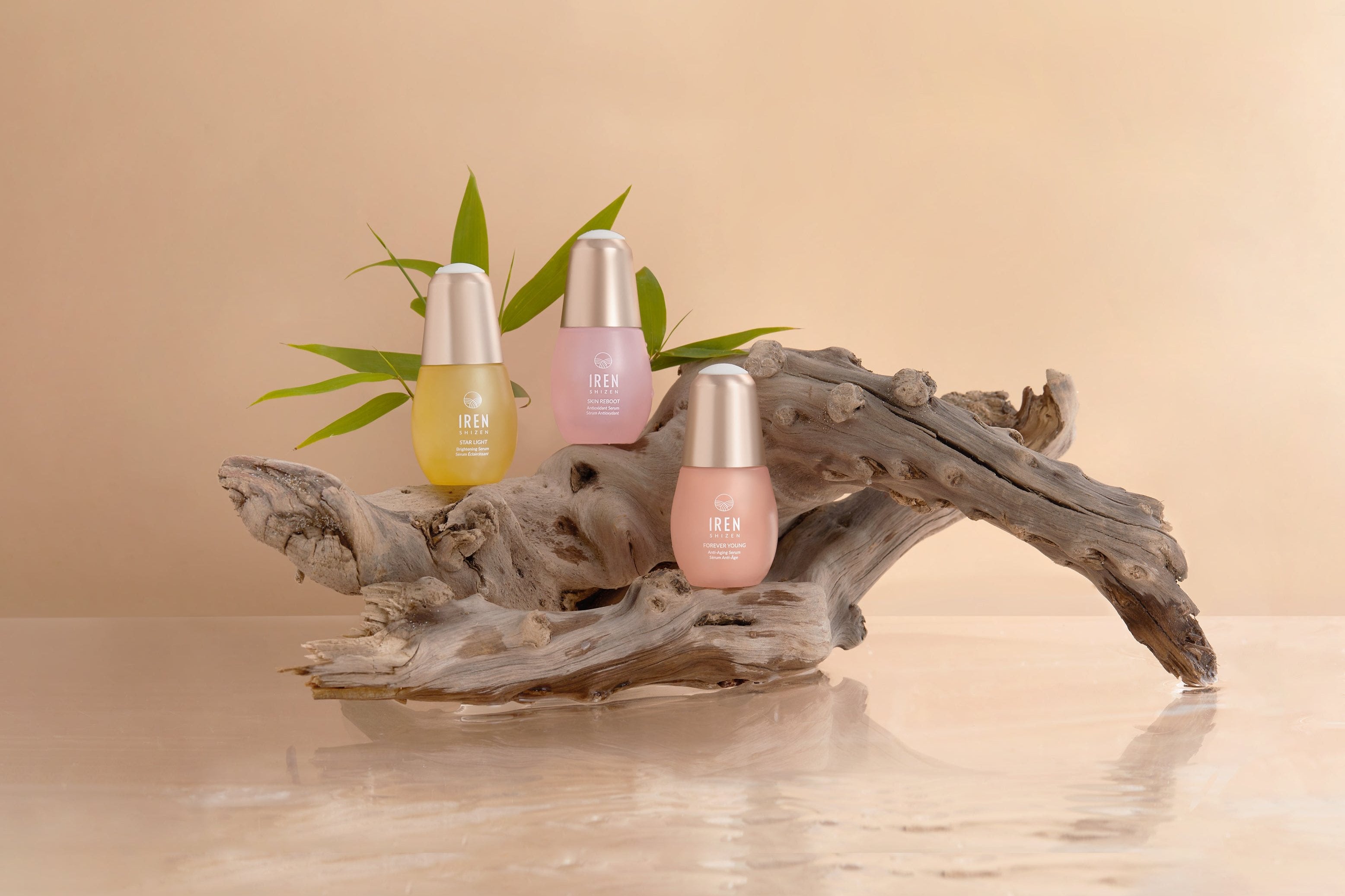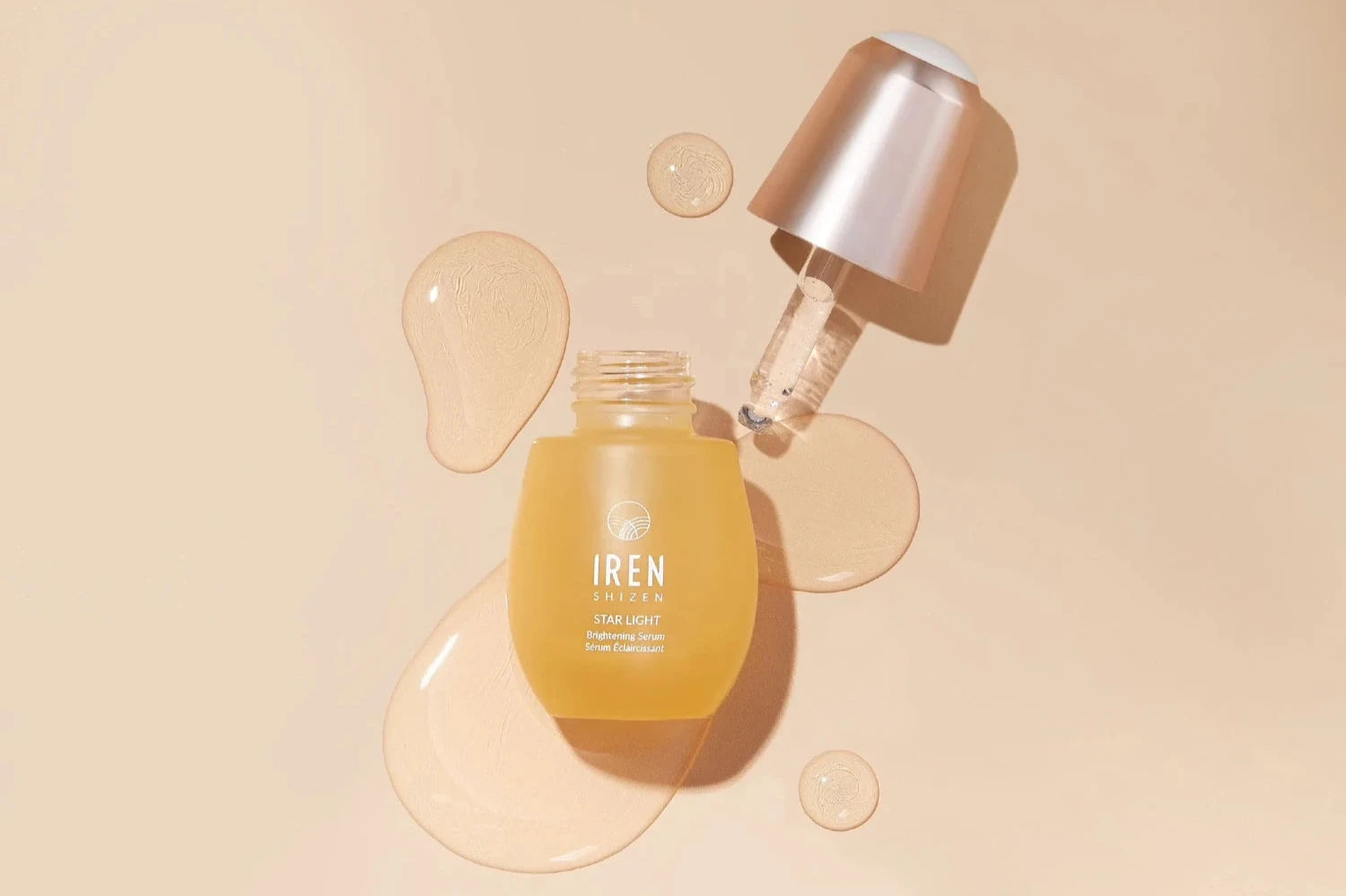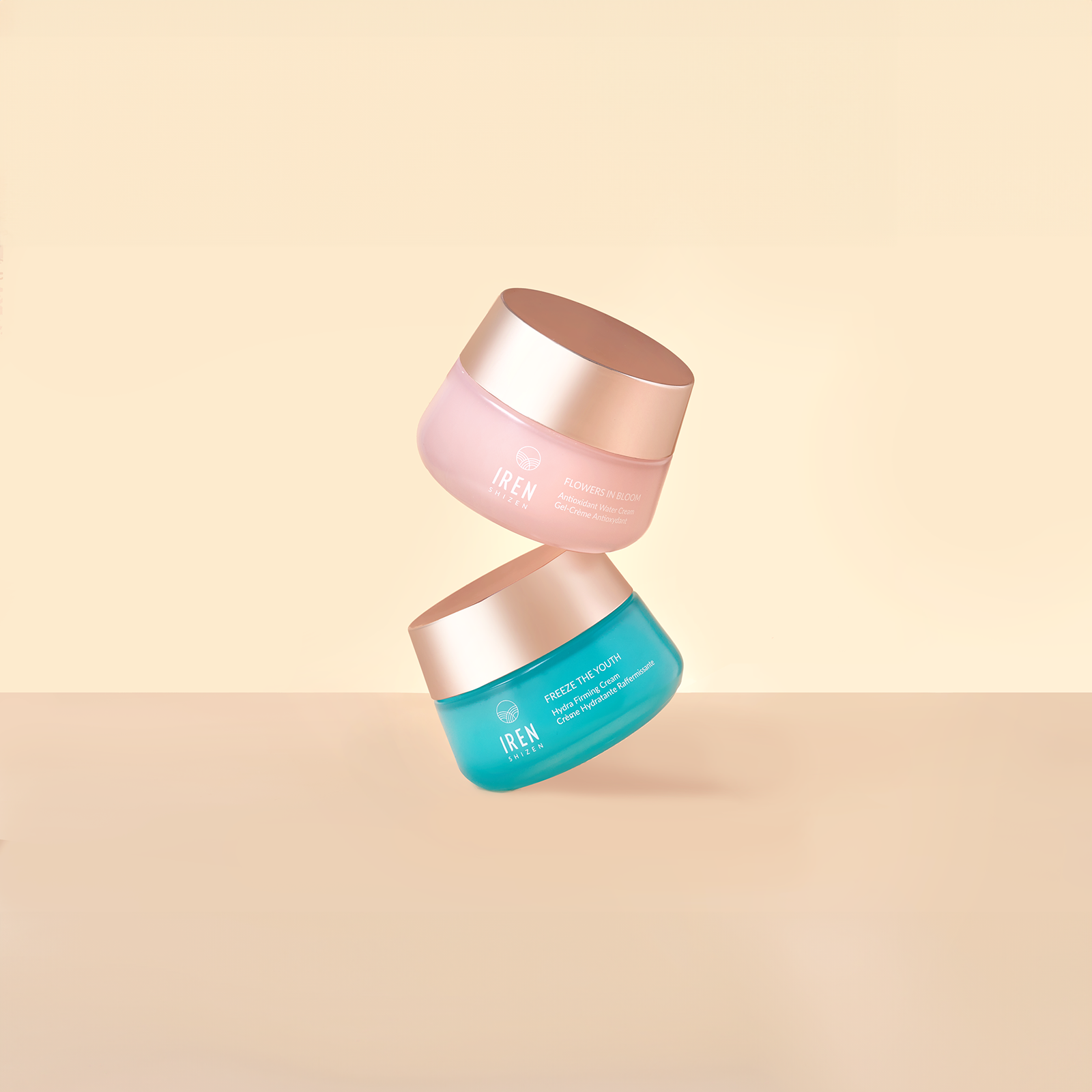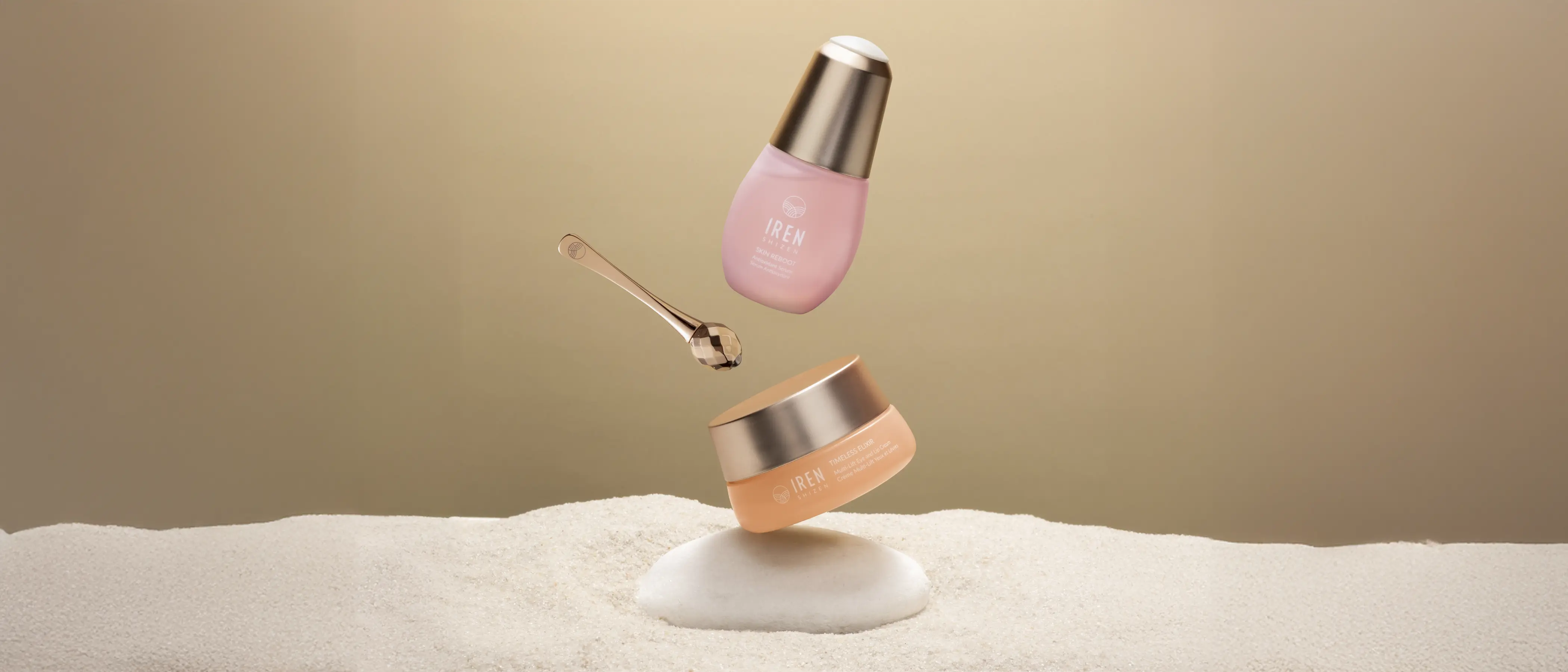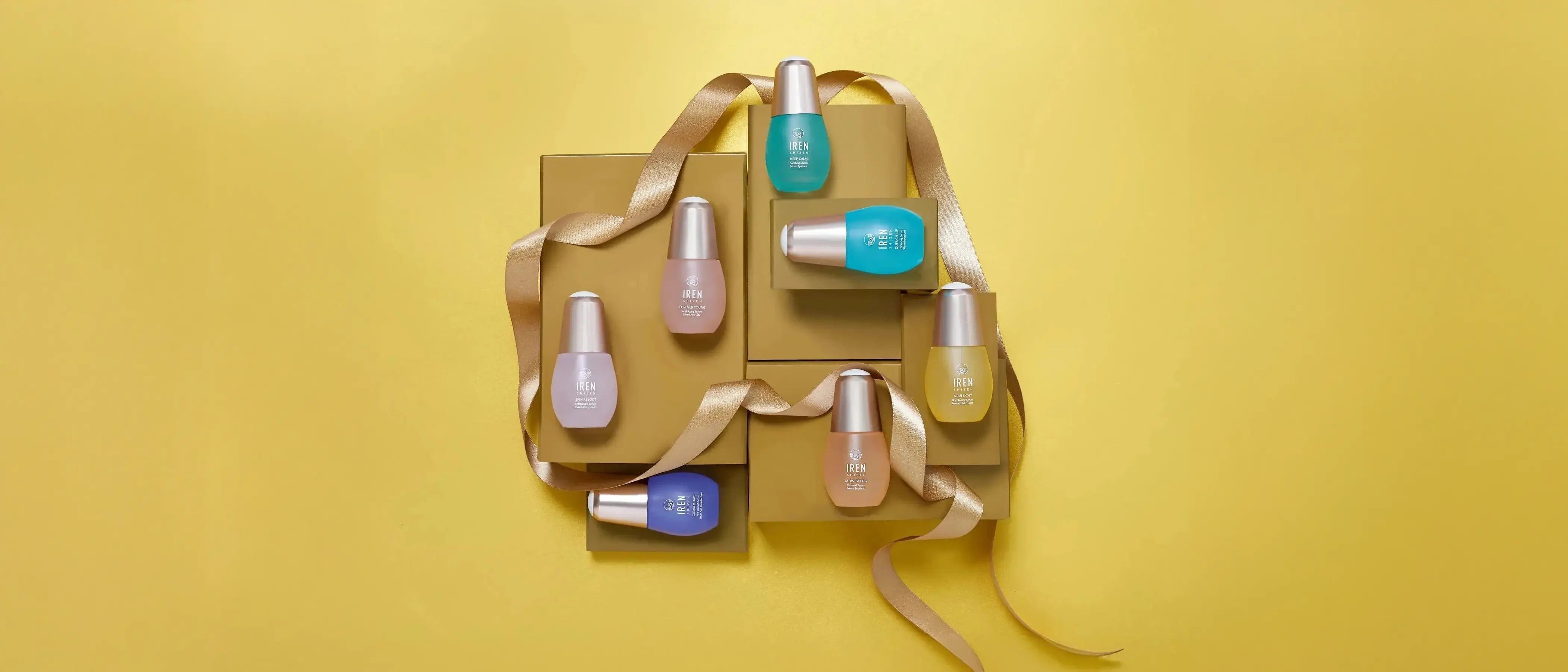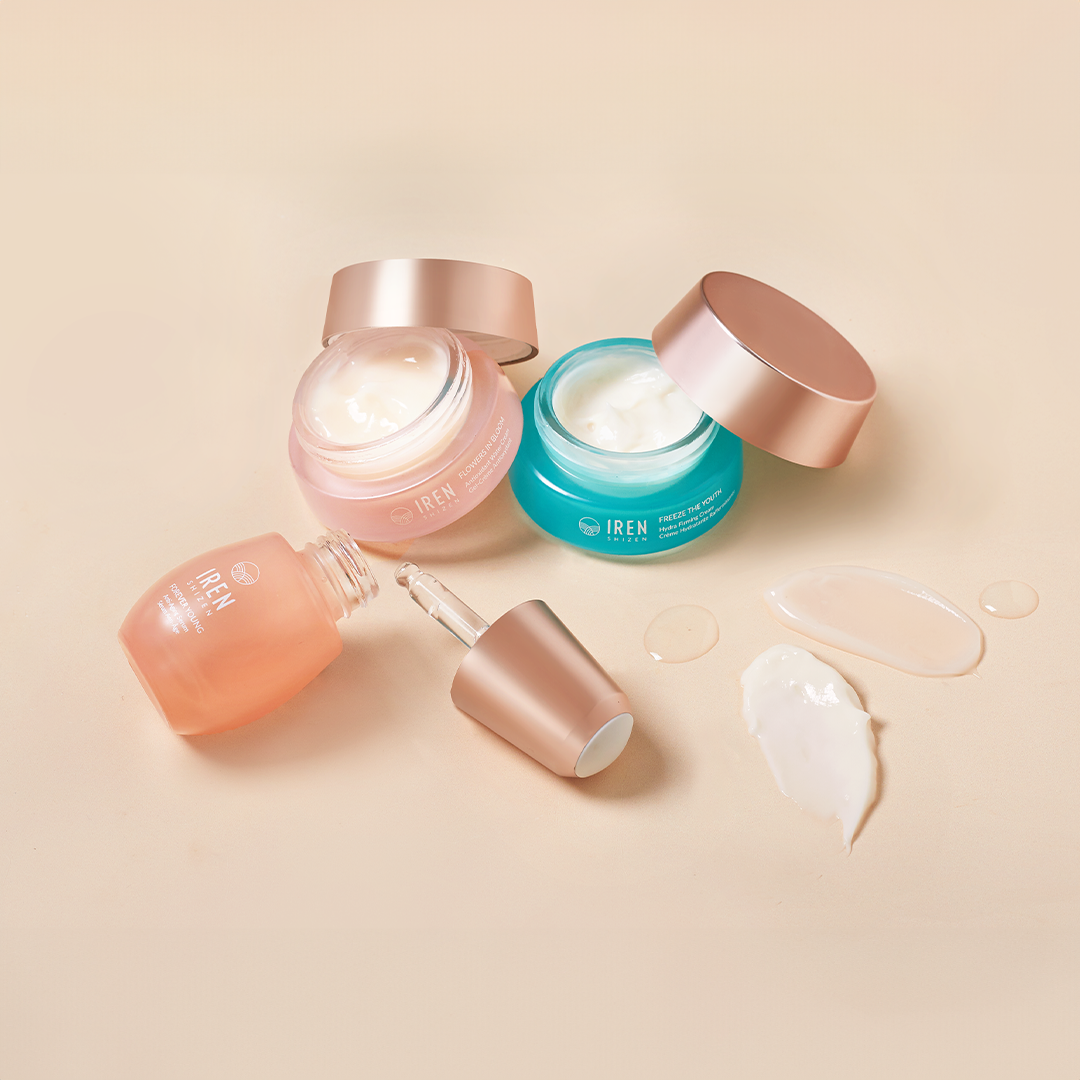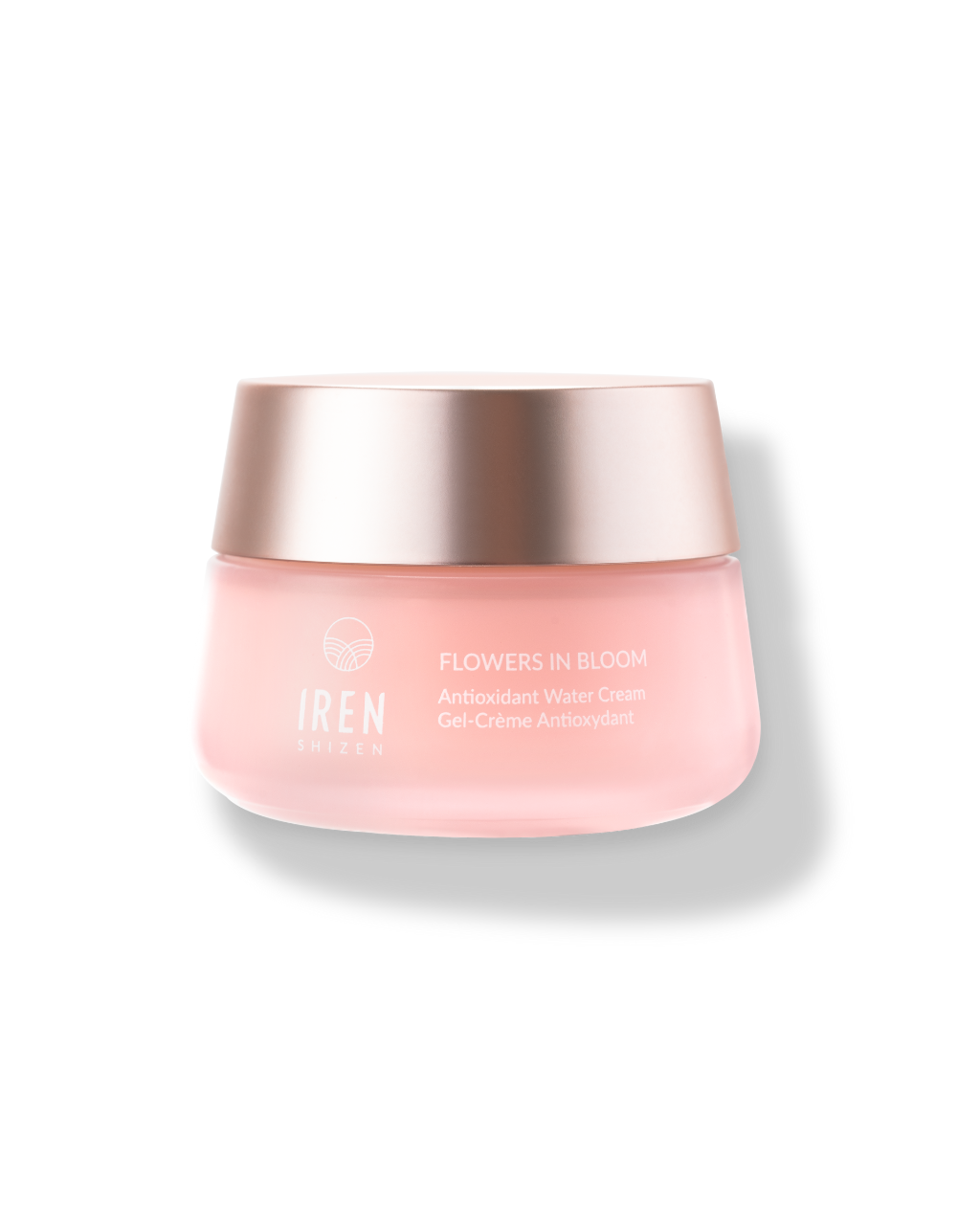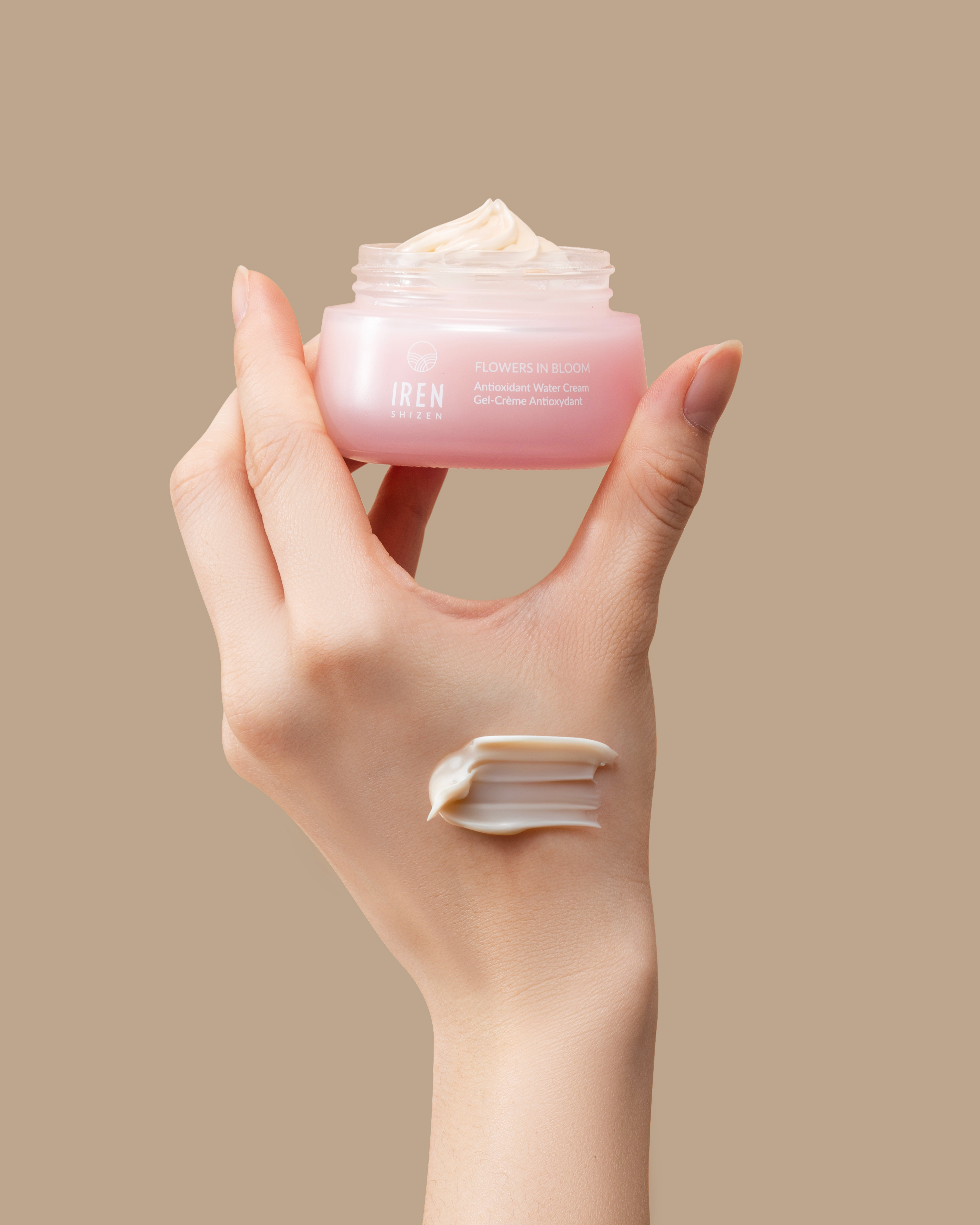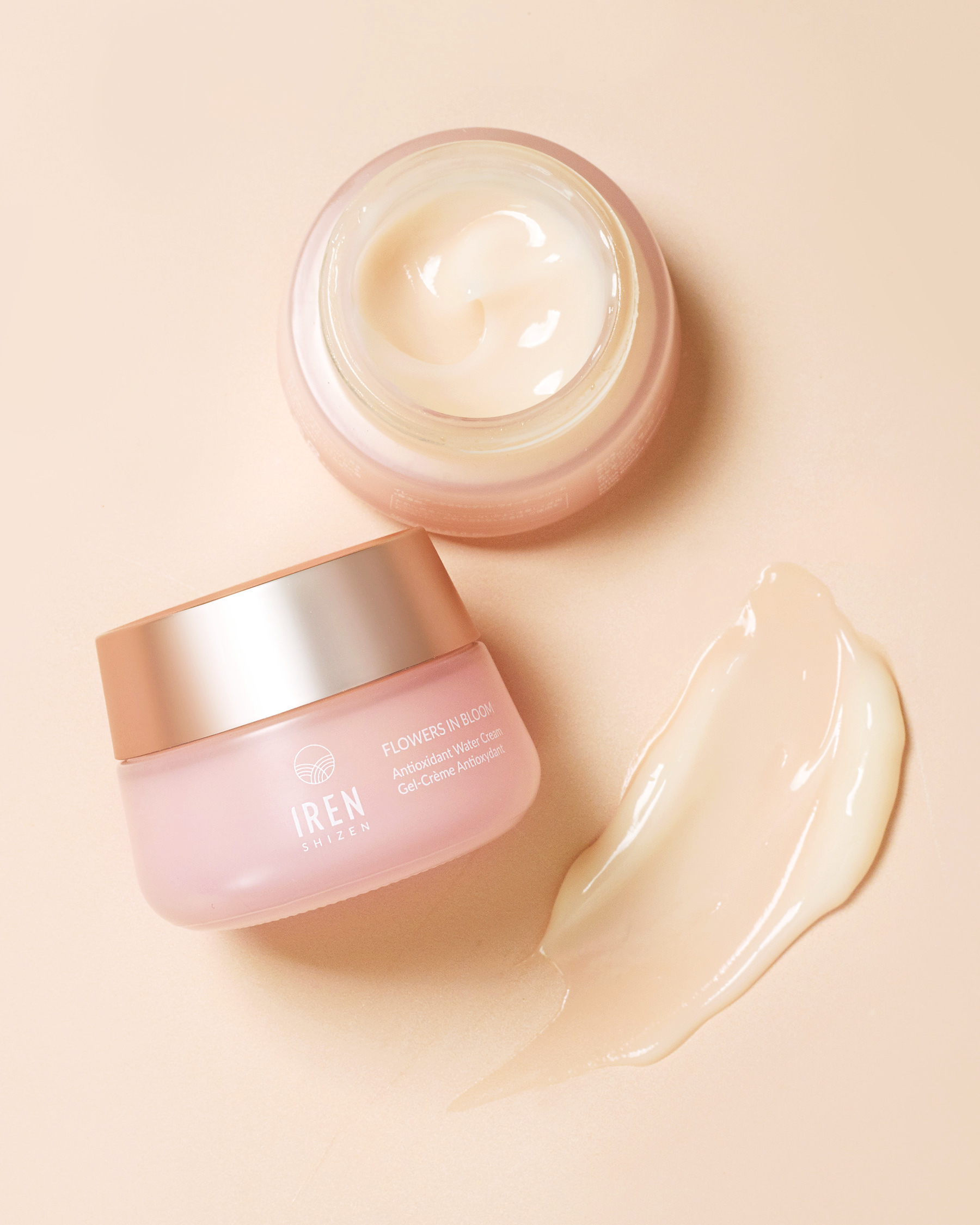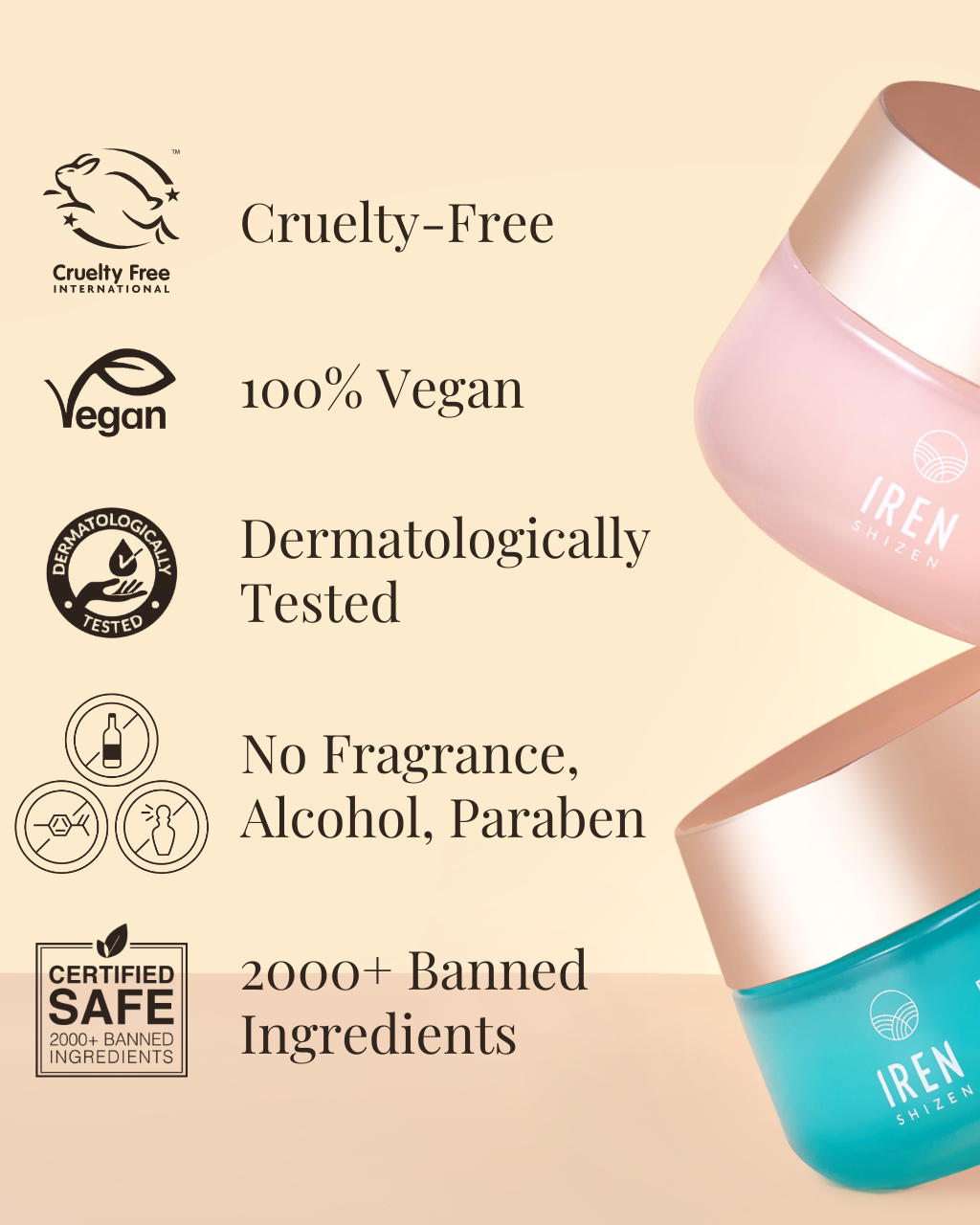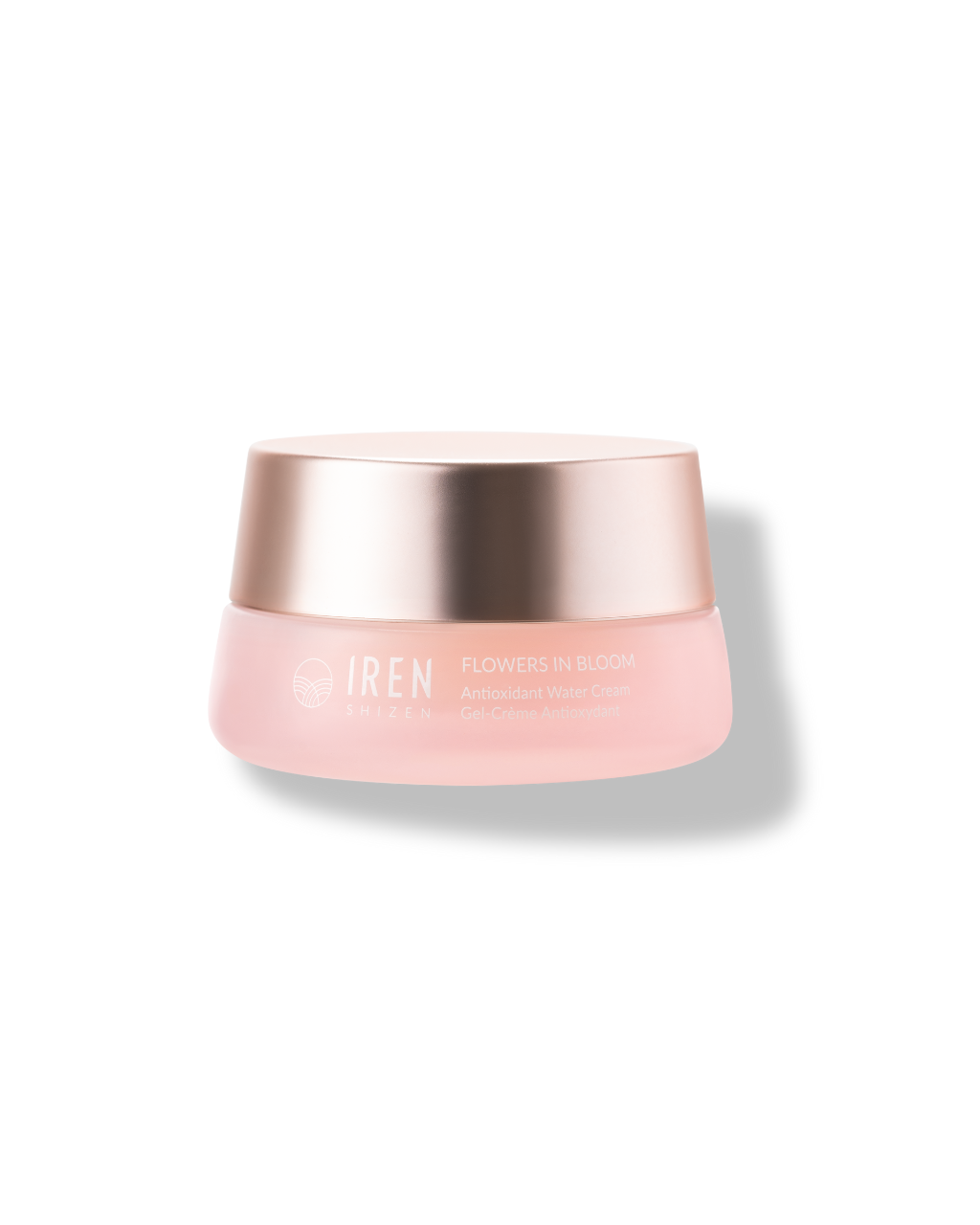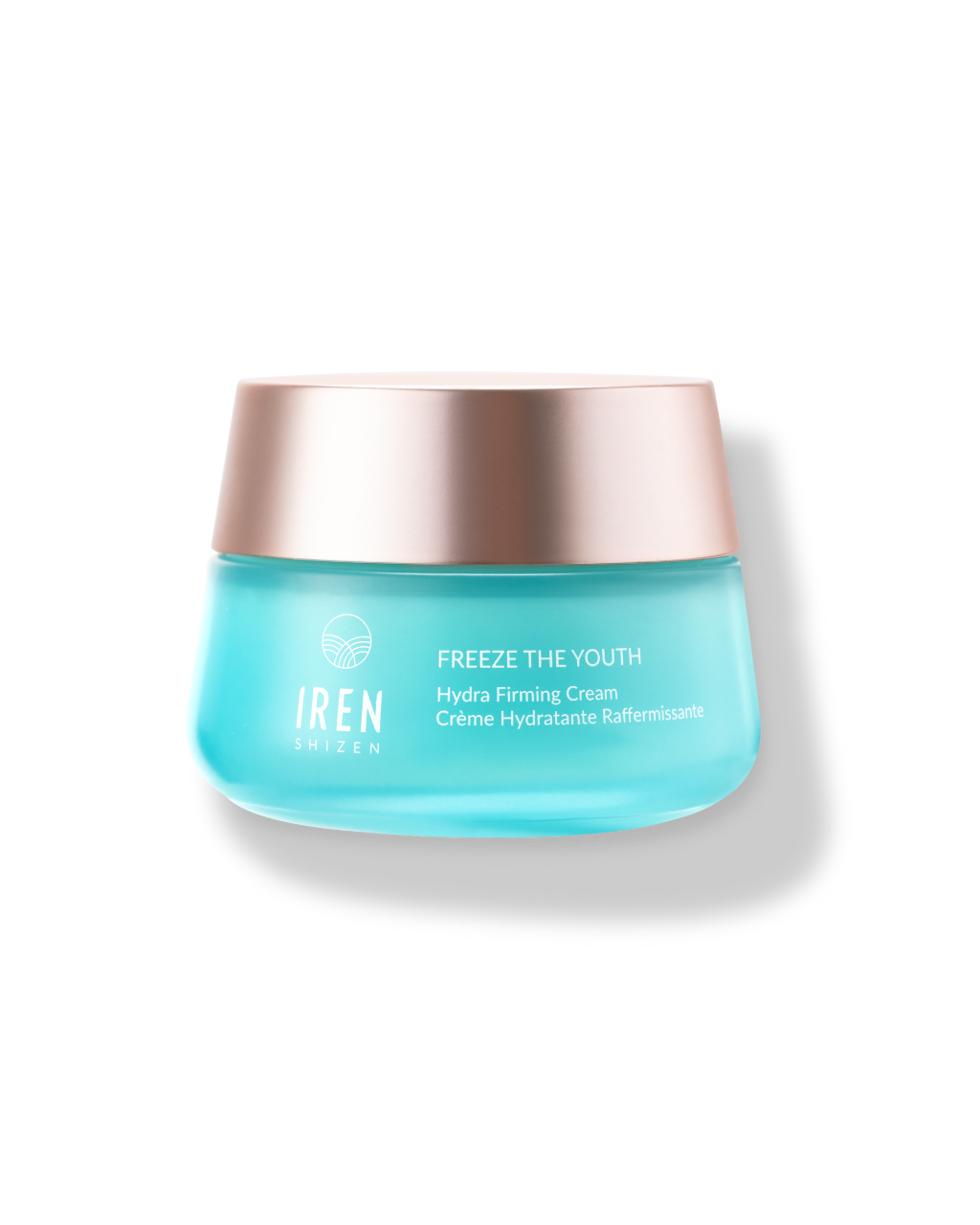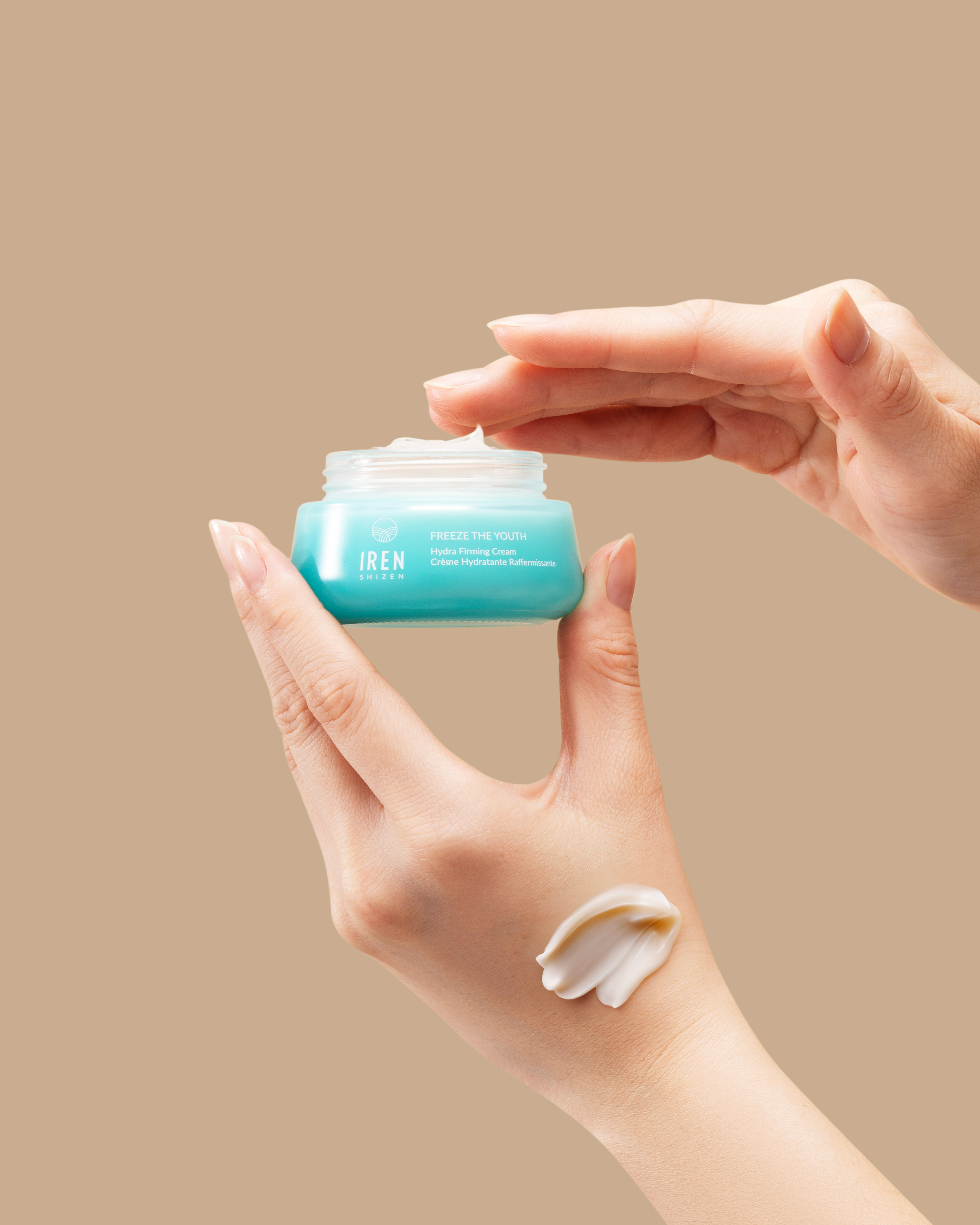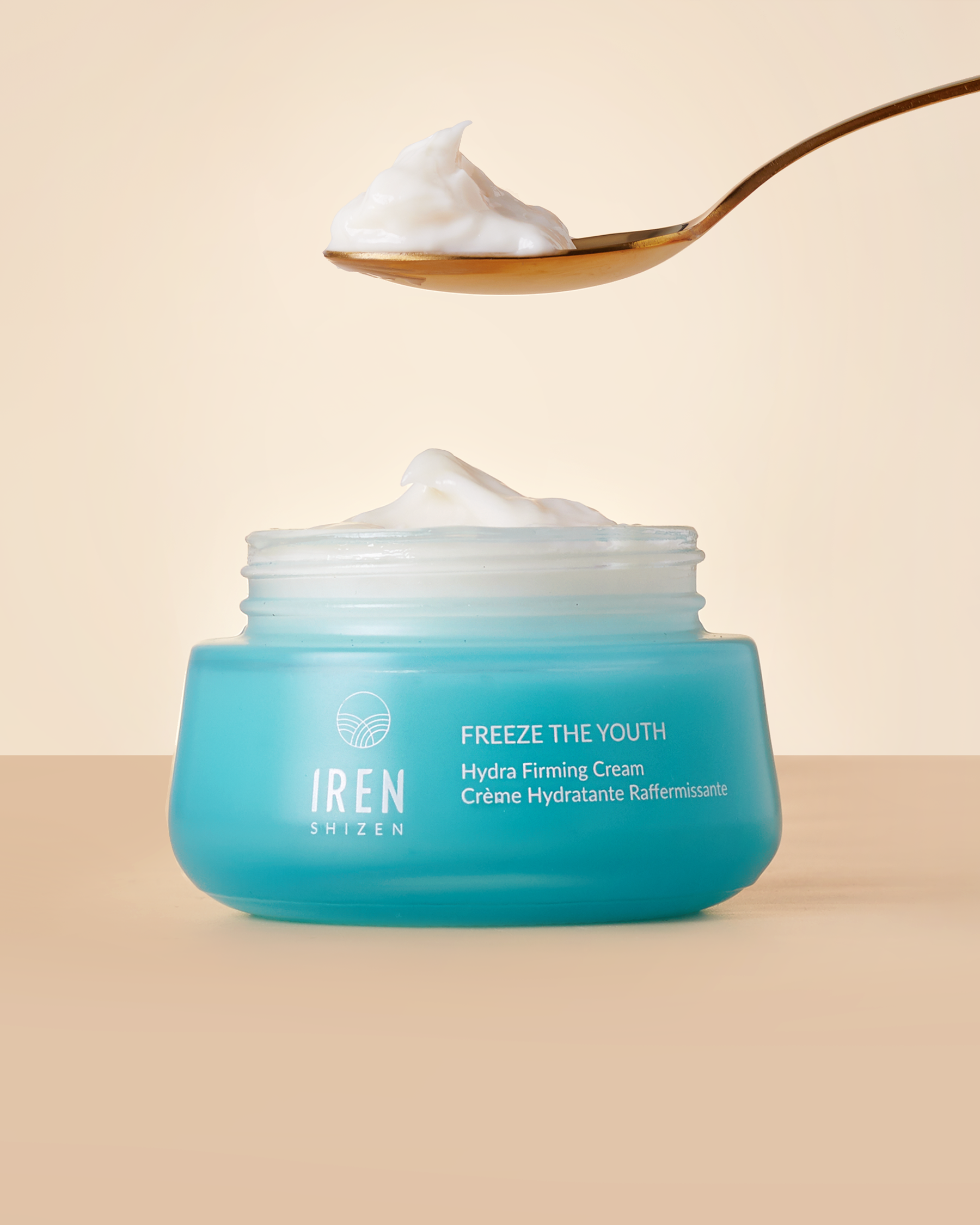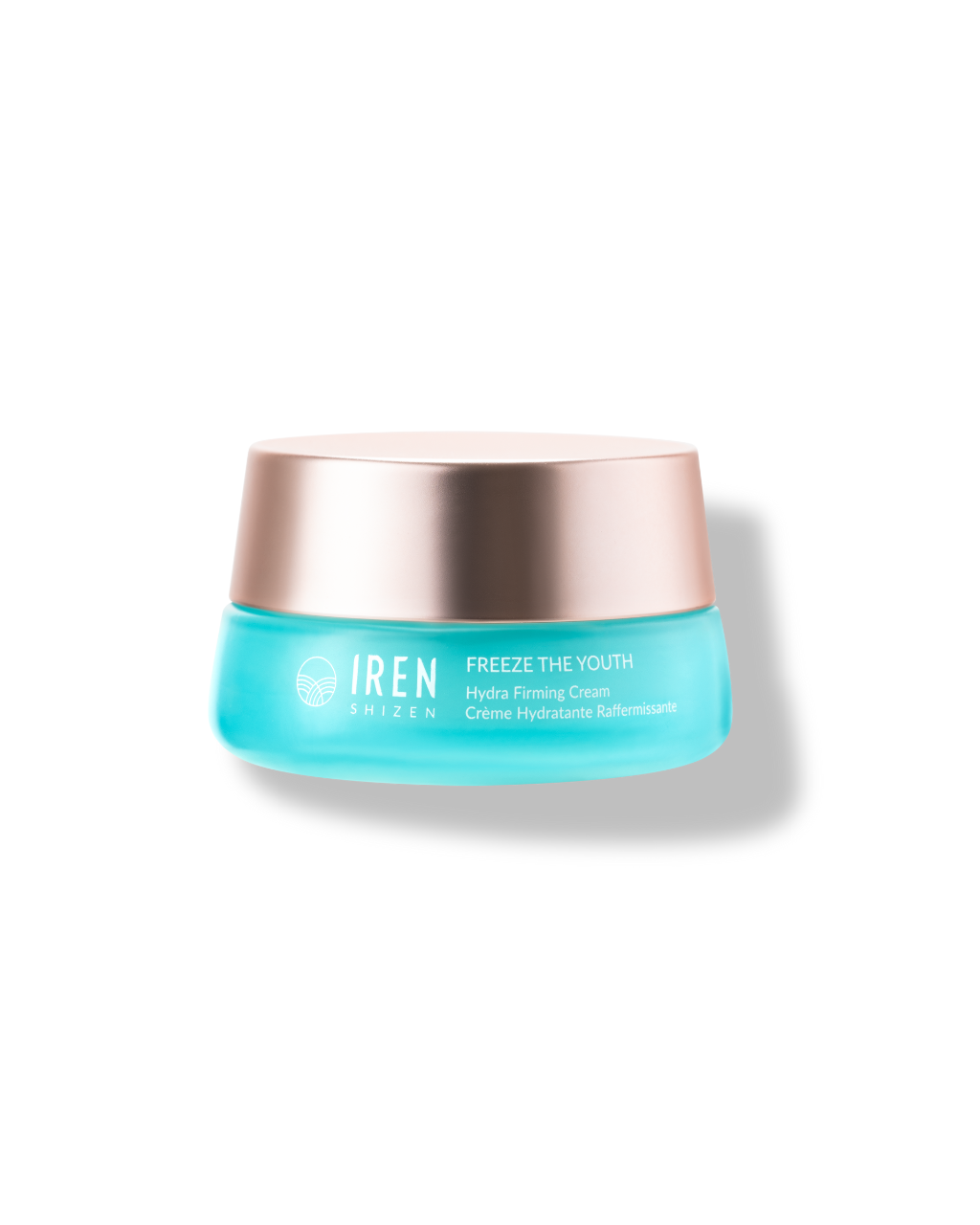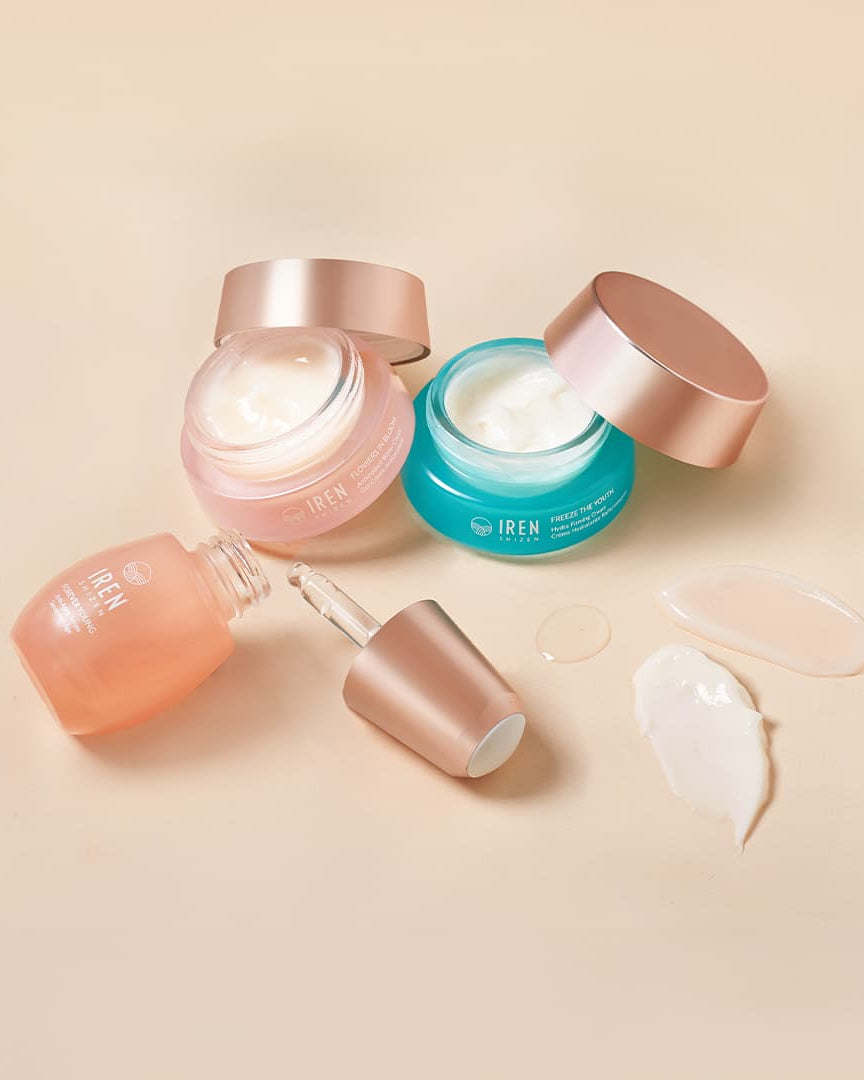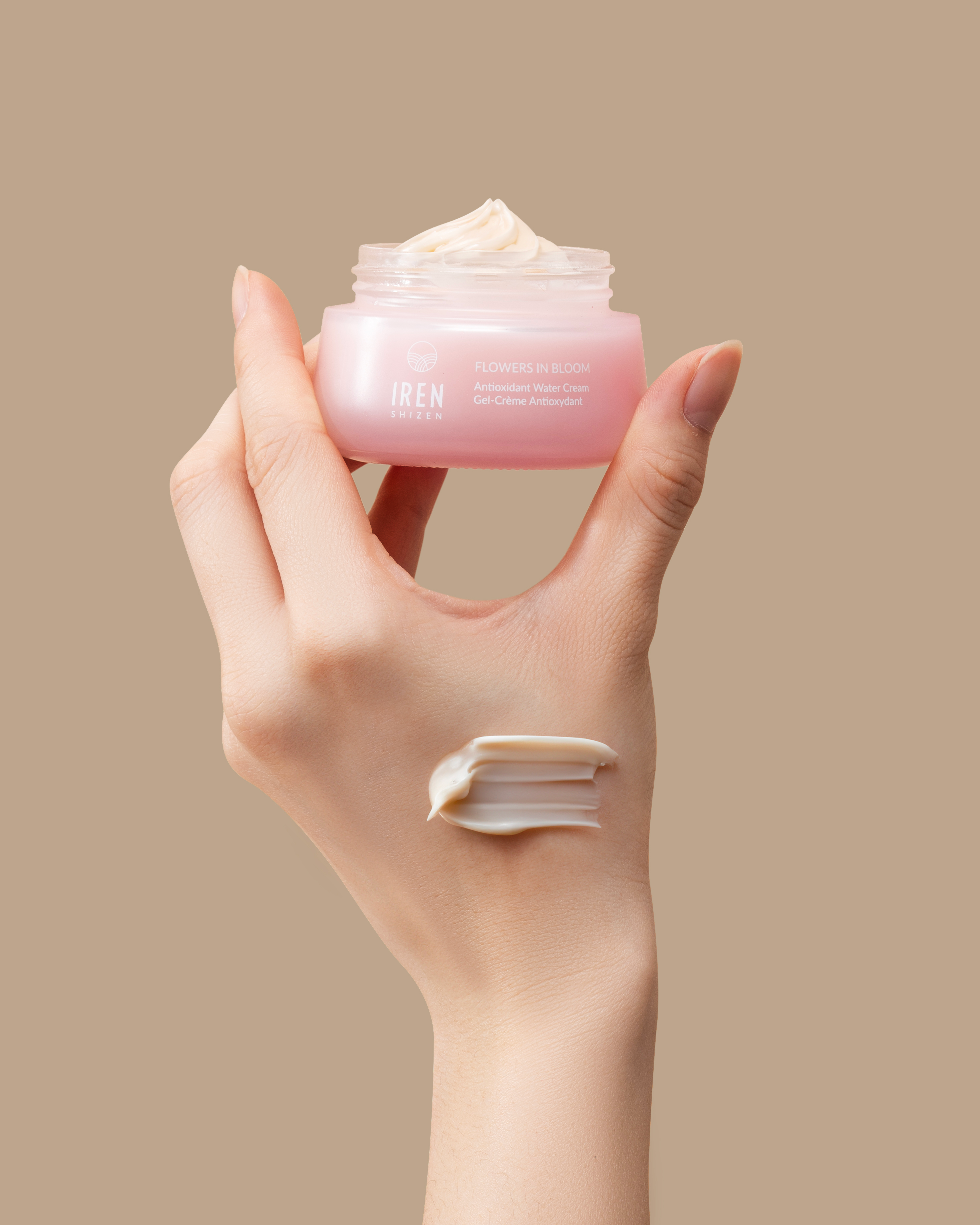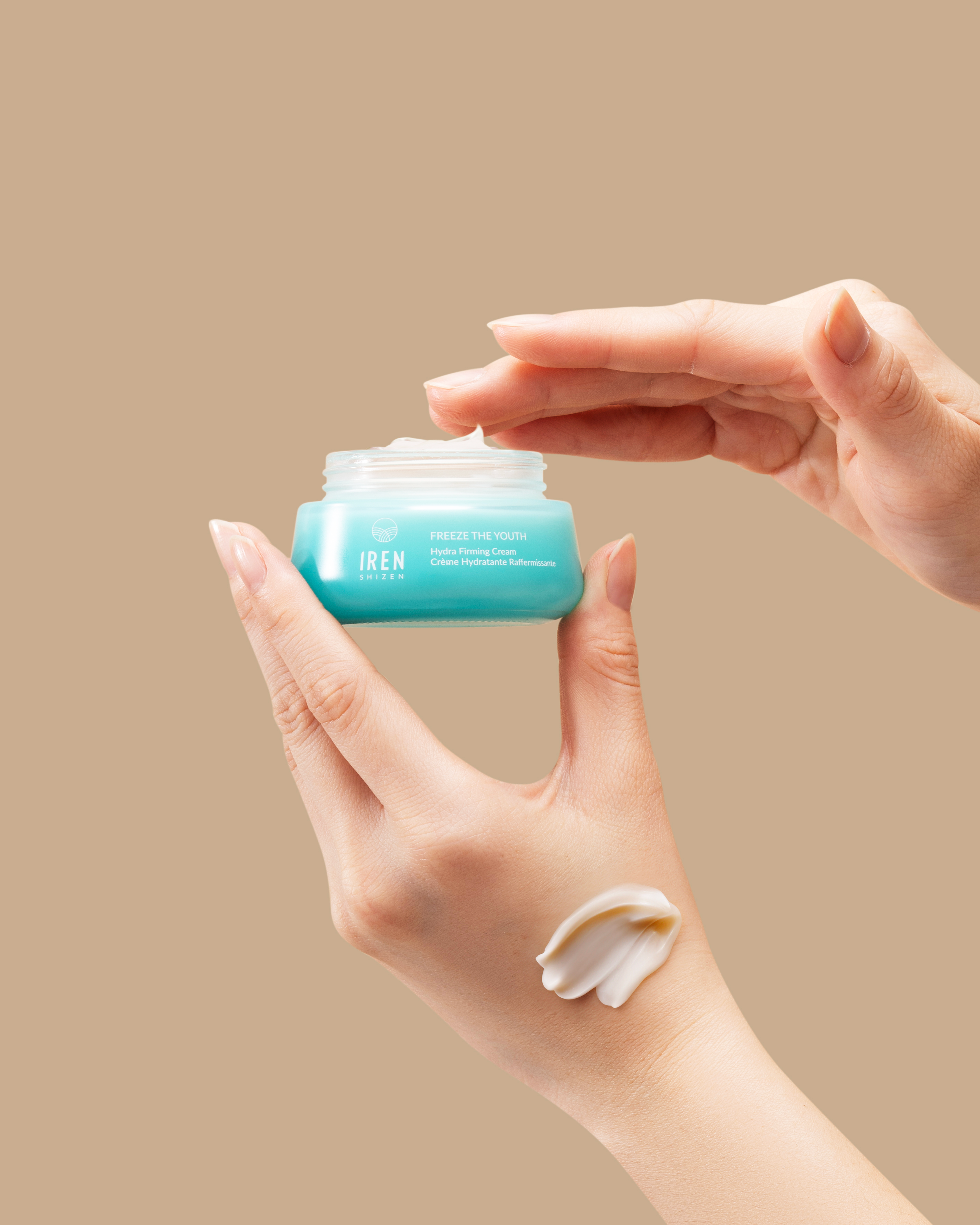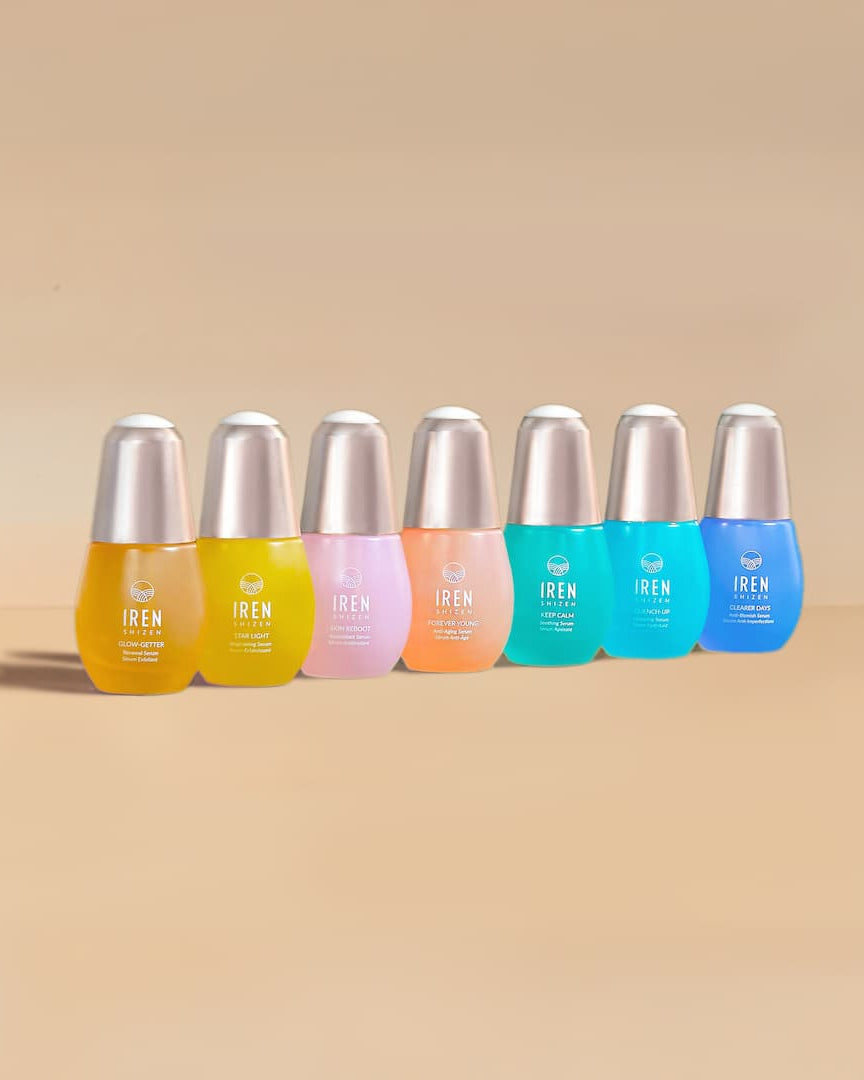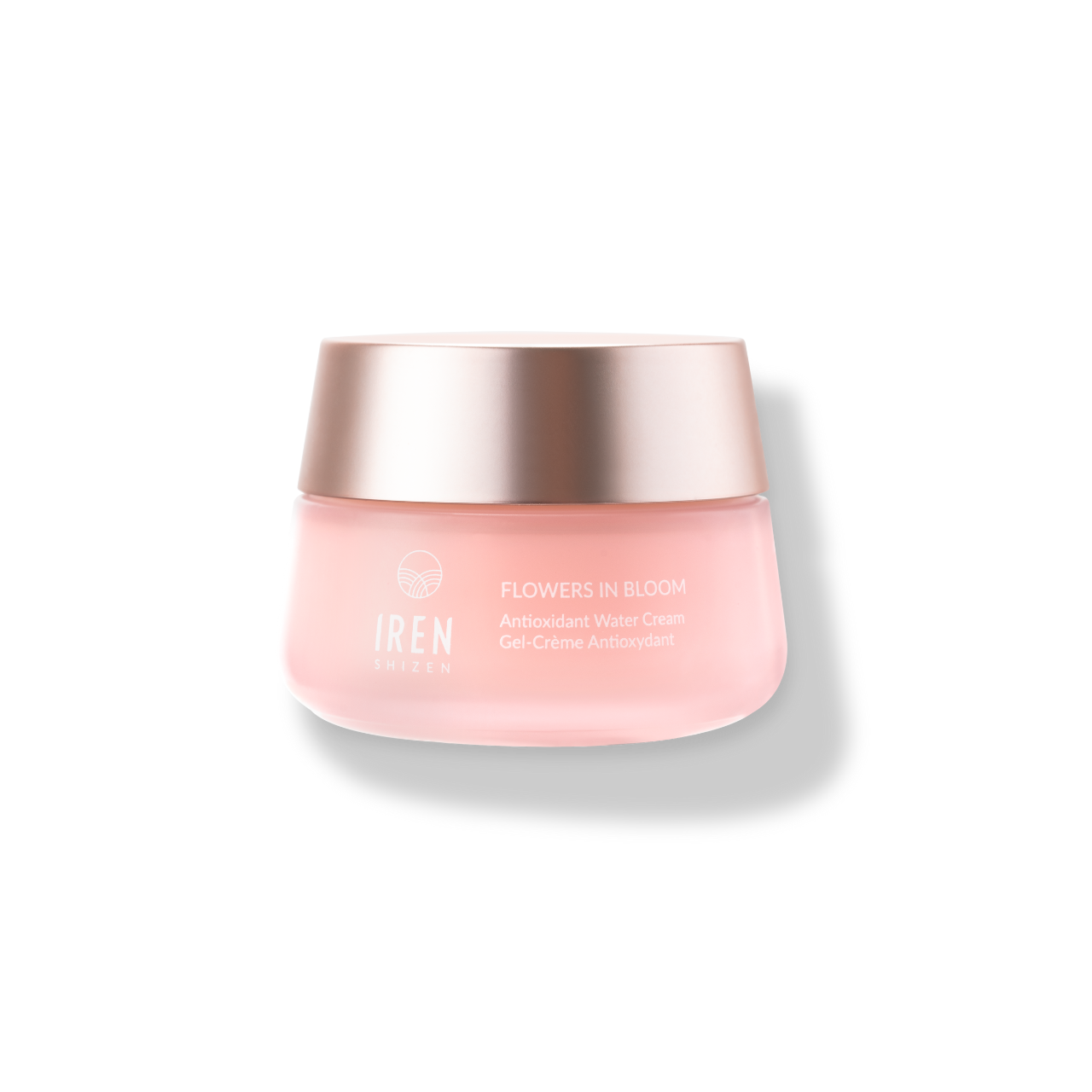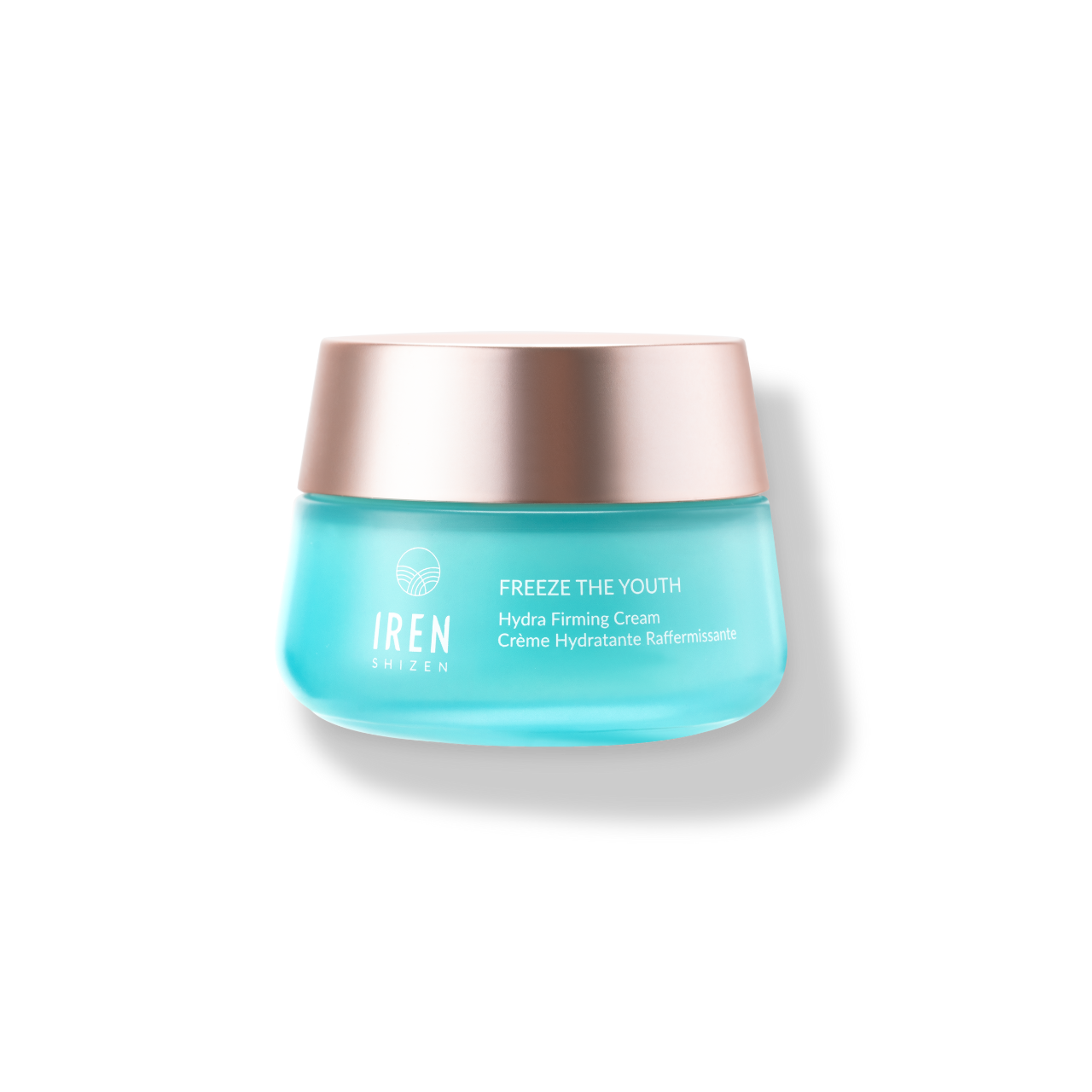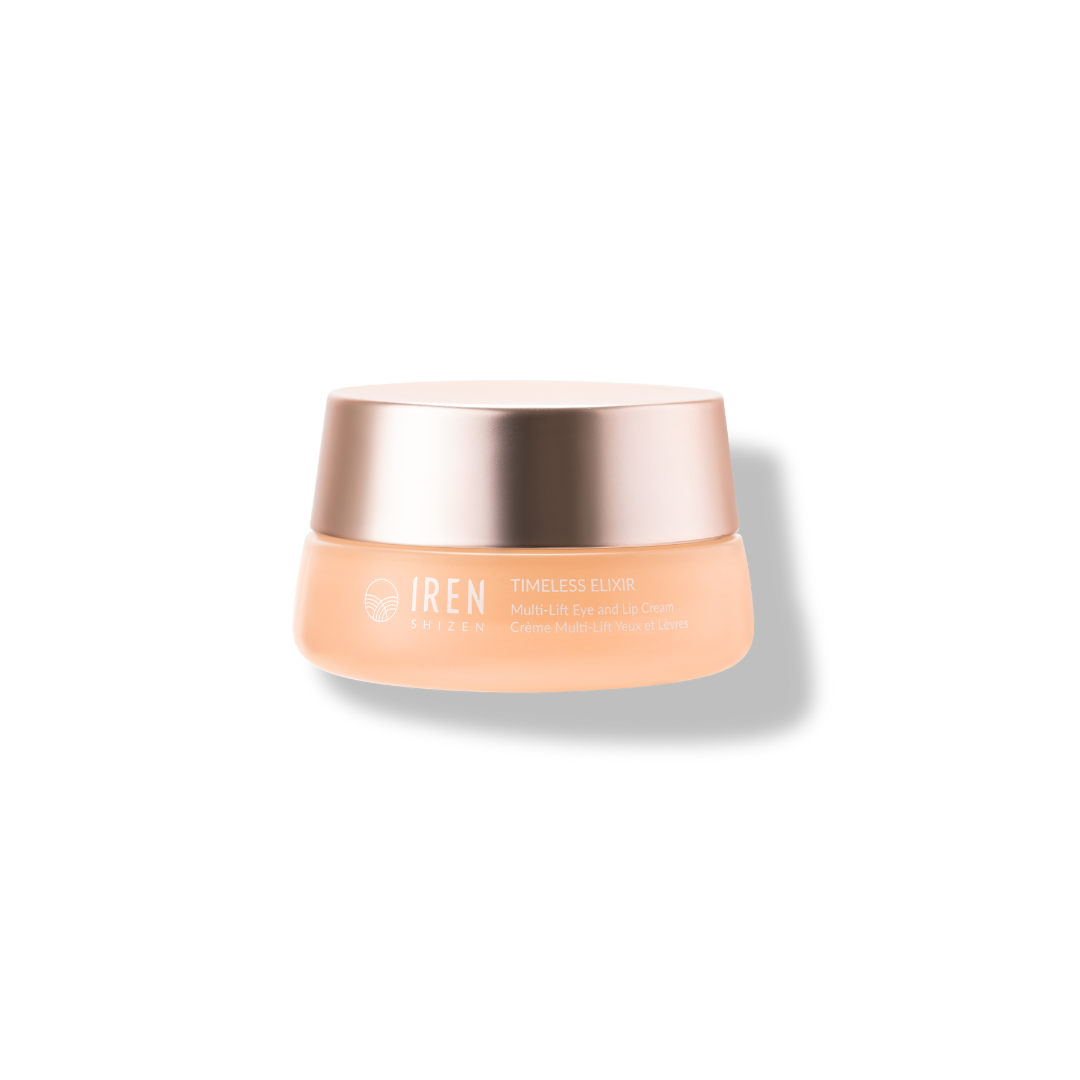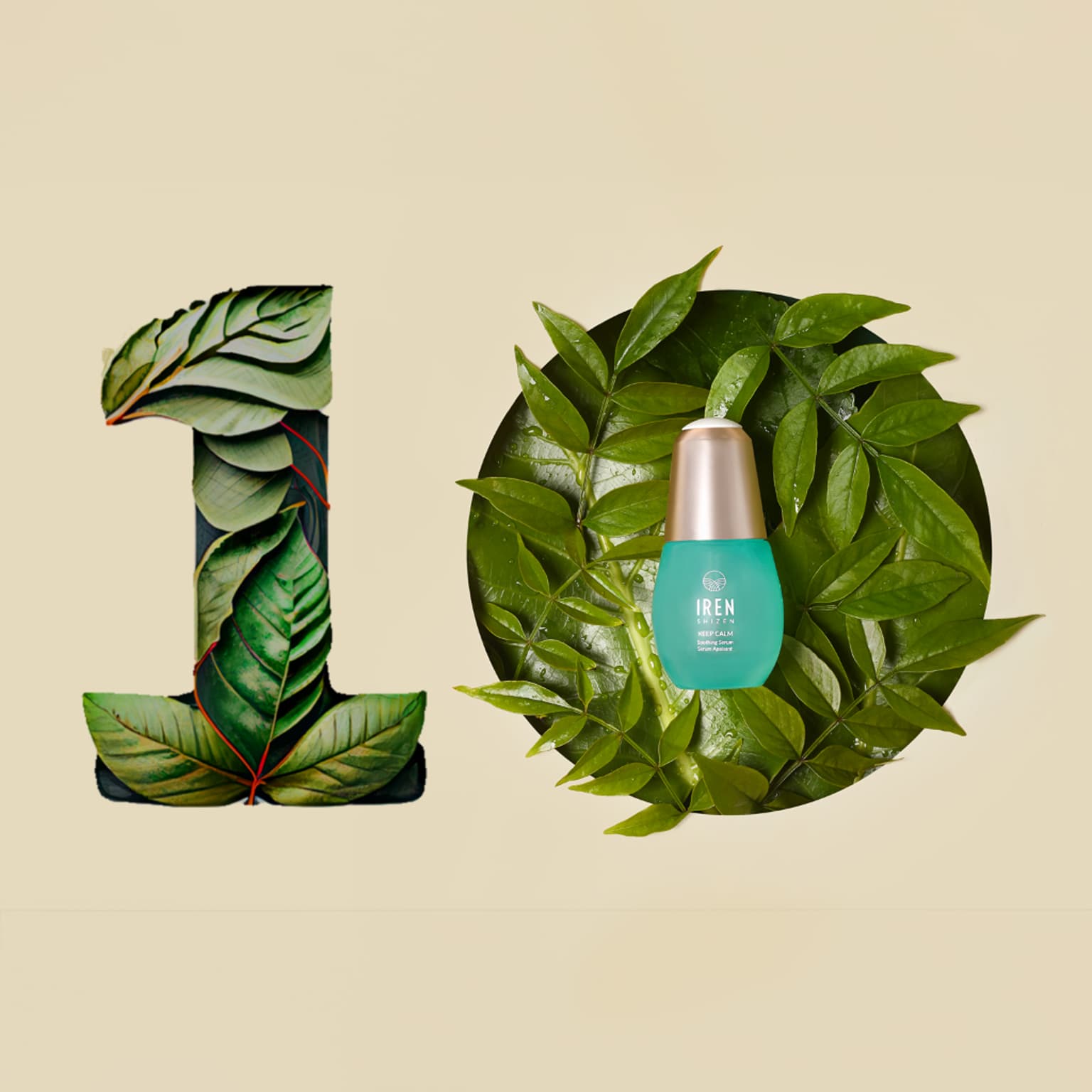Moisturizers
Compare Moisturizers
Why You Should Switch to Silicone-Free Moisturizers?
Imagine your skin breathing a sigh of relief, unfettered by the invisible weight it's been shouldering. Silicone ingredients like dimethicone have been the backbone of skincare regimes for their velvety finish, but there's more to this story than meets the eye.
Silicones have become a staple in many moisturizers, offering a smooth application and acting as a barrier to seal in moisturizers. However, silicones can hide a less favorable reality for your skin and the environment beneath that smooth exterior. Tales of clogged pores and environmental woes have spurred a movement toward silicone-free beauty products. As shiny surface appeal gives way to awareness, a delicate balance emerges, beginning the exploration of potential adverse effects.
Understanding Silicone Ingredients
In the skincare realm, silicone-based ingredients such as cyclopentasiloxane, cyclohexasiloxane, and dimethicone are widespread. Known for their ability to create a velvety feel on the skin, these silicones essentially act as surface agents rather than true moisturizers. Instead of penetrating the skin and providing hydration, they form a protective barrier that can impart a smooth and pliable texture to the complexion.
However, this function comes with a caveat. Ingredients like cyclopentasiloxane and cyclohexasiloxane may give the illusion of hydrated skin while potentially contributing to dehydration underneath their occlusive veil. This is because their hydrophobic nature can prevent water loss, but it also means that natural moisture cannot effectively reach the skin’s surface.
Moreover, due to their occlusive properties, silicones can potentially trap debris and skin oils, obstructing the skin's natural ability to exfoliate dead skin cells. This can lead to issues like clogged pores and impeded cellular renewal, often concerning for those with acne-prone skin. As a result, skincare enthusiasts may seek out silicone-free moisturizers, especially if they have experienced breakouts associated with these ingredients.
The Role of Dimethicone in Skincare Products
Dimethicone is undoubtedly one of the most pervasive silicones found in skincare formulations. This silicone derivative is often lauded for its ability to create a soft, even texture on the skin and for its function as an emollient. Many people enjoy the silky, non-greasy finish it imparts on the skin, making it an attractive ingredient in many cosmetic products.
Despite these aesthetic benefits, dimethicone's reputation is not without blemish. Some individuals with sensitive or acne-prone skin report that products containing dimethicone contribute to breakouts and other skin irritations. It may be an occlusive agent that locks in moisture, but it can also lock in acne-causing bacteria and oils, thus exacerbating skin congestion.
Silicone-free moisturizers sidestep this potential pitfall by eschewing ingredients like dimethicone in favor of alternatives that nourish the skin without the risk of clogging pores. These alternatives cater to consumers who require products that support the skin's natural breathing and renewal processes, aligning with the growing demand for eco-friendly and bioaccumulative-free formulations. By opting for a silicone-free moisturizer, users with sensitive or acne-prone skin can enjoy the benefits of hydration without worrying about the triggers that might lead to breakouts or sensitivity.
Negative Effects of Silicones on the Skin
Silicones, lauded for their smoothing effects in skincare, have a less desirable side effect that may impact skin health. While they work wonders at providing tactile elegance and sealing in moisture, these occlusive compounds can inadvertently deplete the skin's natural hydration, potentially altering its pH level. This alteration can pave the way for sensitivity and irritation, compromising the skin's defensive natural barrier. Furthermore, by creating a surface seal, silicones can trap a cocktail of dirt, impurities, and bacteria against the skin. This accumulation can escalate skin woes, from minor flare-ups to more pronounced conditions.
Compounded by their occlusive traits, silicones have the capability to induce overactivity of the sebaceous glands. This response can cause excess sebum production, thus presenting an unwanted oily sheen on the skin's surface and creating a perpetual cycle of imbalance and shininess. Individuals with naturally sensitive or oily skin may experience a noticeable exacerbation of these skin states with the continuous use of silicone-loaded products.
How Silicones Can Cause Breakouts and Clogged Pores
Silicones in skin care can be a double-edged sword for those prone to breakouts and clogged pores. Their capacity to seal in moisture also means they act as a barrier over the skin, which might not be entirely beneficial. This layer hampers the essential process of transpiration, where the skin needs to breathe and release toxins. When this breathing is inhibited, pores may become congested, laying the groundwork for acne flare-ups. The irony is that while silicone itself is not recognized as an irritant, its occlusive nature could result in a skin environment more conducive to sensitivity and acne.
Those with sensitive skin or dry skin are often advised to tread carefully around silicones in skincare products. Such ingredients can complicate their skincare journey by intensifying sebum production and inciting irritation. By gradually transitioning to silicone-free moisturizers, individuals with finicky skin types may note decreased irritation, less sebum congestion, and improved overall skin clarity—free from the shackles of breakouts and product-induced blockages.
Eco-Concerns: Bioaccumulative Properties of Silicone Ingredients
We must scrutinize the long-term implications of silicone ingredients in our skincare as we focus on environmental concerns. Silicones, engineered to linger with steadfastness on the skin, furnish us with an indulgently soft complexion. Yet this resilience raises questions about their interaction with the skin's barrier—namely, the stratum corneum lipids—and their potential to accumulate over time. Scientific scrutiny suggests that these persistent compounds don't vanish without a trace; instead, they can linger both on the skin and in the environment.
This persistence underscores a pressing eco-concern: the bioaccumulative nature of certain silicone molecules used in cosmetic formulations. With continual application and inadequate removal, silicones might affect the skin's barrier function and contribute to environmental exposure concerns due to their longevity and resistance to breakdown. Once they are rinsed down the drain, they contribute to the buildup of sludge pollution in oceans and waterways and may not break down for hundreds of years.
As we weigh the benefits of silky-smooth skin against these bioaccumulative properties, shifting towards more eco-friendly and health-conscious skincare choices becomes a personal choice and a collective responsibility.
Finding Alternatives for Silicone-based Moisturizers
Finding the right moisturizer can be a game-changer for enhancing skin health, particularly when seeking options free from silicone-based ingredients notorious for their potentially pore-clogging and acne-aggravating effects. Opting for silicone-free moisturizers is wise for anyone eager to avoid the pitfalls of occlusive barriers that can trap debris and oil on the skin's surface. These non-comedogenic or oil-free alternatives are specifically formulated to nourish the skin without leading to congestion or exacerbating oily skin dilemmas.
Silicone-free moisturizers offer a myriad of benefits. They tend to be made from ingredients that mimic the skin's natural sebum, providing necessary hydration without contributing to an overload of oil. For those seeking balanced, clearer skin, these moisturizers can reduce the risk of breakouts and encourage a more normalized and refined skin texture. They are especially beneficial for those with combination skin or acne-prone skin who require effective hydration without additional oil that can worsen their condition.
Silicone-free moisturizers can be a saving grace for individuals with sensitive or dry skin. These formulations support the skin's natural breathing process and foster a healthier barrier function while maintaining ample moisture levels. As a result, users often report an improvement not only in hydration but also in overall skin health and appearance.
Switching to a silicone-free formula paves the way for a more natural and skin-friendly approach to personal care. Removing silicones from one's skin care routine can reveal the true state of the skin underneath, allowing for better absorption of beneficial ingredients and supporting the skin's inherent ability to self-regulate.
Exploring Eco-Friendly and Non-Occlusive Ingredients
In our eco-aware era, the demand for skin care that respects skin health and environmental sustainability is rising. Silicone-free moisturizers step up to the plate, boasting blends that feature eco-friendly and non-occlusive ingredients that are necessary for delivering uncompromising hydration and ethical peace of mind.
Hydrating heroes such as aloe leaf juice and green tea extract are at the forefront of eco-conscious skin care. They offer moisture without the heaviness or potential for pore blockage, which is ideal for dry skin. These natural extracts are valued for their soothing and antioxidant properties, providing quenching relief, and are suitable for even the most sensitive skin types.
Including niacinamide, peptides, and vitamin E in these formulations highlights a commitment to skin vitality. Niacinamide, a form of vitamin B3, is praised for improving the appearance of enlarged pores and fine lines, while peptides support collagen production for a more youthful complexion. Vitamin E is a nurturing antioxidant, protecting the skin from environmental stressors.
Moreover, some silicone-free moisturizers enhance their compositions with ingredients like hyaluronic acid, known for its exceptional capability to retain moisture, and PHAs (Polyhydroxy Acids), which offer a gentle exfoliation without stripping the skin. These ingredients work synergistically to maintain hydration levels and encourage a smoother, more radiant skin surface, which works excellent for dry skin.
For those specifically seeking to reinforce their skin barrier, formulations with prebiotics and postbiotics offer a well-rounded approach to skincare. They simultaneously support the skin's microbiome and fortify its defenses against external aggressions. These moisturizers often avoid harsh alcohols, silicones, and sulfates, proving their alignment with eco-friendly and skin-conscious standards.
Lastly, gel-based moisturizers with chamomile, aloe vera, and green tea are excellent matches for troubled or sensitive skin profiles. Their lightweight texture provides sensitive skin calming and anti-inflammatory benefits without contributing to oiliness. These lightweight formula underscore the shift towards thoughtfully curated, non-occlusive skin care solutions.
Best Moisturizers for Acne-Prone and Sensitive Skin
The search for the holy grail of moisturizers suited to acne-prone and sensitive skin often turns away from products laced with silicones and toward more skin-compatible, clearer formulations. Silicone-free moisturizers are a boon for those afflicted with such skin types, as they deliver essential hydration without the risk of pore blockage or exacerbating existing skin woes.
Non-comedogenic or oil-free moisturizers serve as a beacon for those navigating the vast skincare market, signaling a safe harbor for acne-prone visages. By eschewing ingredients like dimethicone and cyclopentasiloxane that may trap dirt and sebum, these moisturizers are designed to maintain clean pores while providing the skin with the moisture it craves.
The natural stance of silicone-free offerings generally translates into formulations abundant with skin-loving ingredients that harmonize with the body's own chemistry. Free from synthetic occlusive agents, these moisturizers facilitate the skin's essential functions, like self-repair and turnover. They help diminish the likelihood of acne flare-ups and promote a more even-toned, soothed skin appearance.
For sensitive or dry skin, silicone-free moisturizers' gentle nature can relieve irritation and sensitivity that harsher, more synthetic products might perpetuate. Focusing on purity and simplicity, these formulations help stabilize reactive skin, ensuring that each ingredient serves a purpose that aligns with nurturing and protecting the delicate skin barrier.
In conclusion, whether it's due to the need for a non-irritating, acne-preventative solution or a step towards a more environmentally sustainable skincare routine, silicone-free moisturizers stand out as a prudent choice for a spectrum of skin concerns, looking after both the individual's complexion and the world around us.
